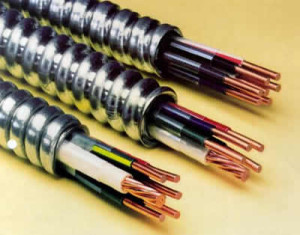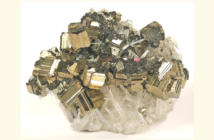An electric conductor is a material that allows the flow of electric current to pass through. The electric conductivity will depend on the actual material of the conductor. If the material allows high mobility of free electrons this will make them great conductors of electricity.
Metals are some of the best conductors because there are spaces between their atoms which allows electrons to move. Of all the materials, the top three are silver, copper and aluminum.

Silver is known to be the best conductor of electricity but it is not widely used for economic reasons. It is only used for special equipment like satellites.
Copper, though not as high as silver, also has high conductivity. In fact, the official point of reference for conductors is the International Annealed Copper Standard (IACS). The most common grade of copper is ETP (electrolytic-tough pitch) copper. This is the metal used in wires, cables, busbars and motor windings. The conductivity of this copper is 101% IACS.
Aluminum only has 61% of the conductivity of copper but it is the preferred material for building wires because of the low cost. Aluminum has higher conductivity when compared to copper by weight but it requires a compatible connector to avoid the formation of resistive oxide within connections. When used in building wiring, it slowly deforms under load and that leads to the loosening of device connections. When it has the right connector and is installed properly, it works well for low voltage distribution (e.g. service drops, buried cables).
There are certain nonmetals that can also be conductors of energy like water, graphite, concrete or glass. These are less conductive compared to metals but under the right circumstances, they can become effective conductors.
Pure water (H2O) is not a conductor but when it becomes dirty (or mixed with other elements like salt), electricity can flow through it. Most of the water on Earth is actually “dirty water” because it has other compounds added to the pure water. Other liquids, oil or organic compounds, cannot conduct energy because of their composition.
Glass is usually an insulator but when it is heated, it can become a conductor. This is in contrast with metals that become better conductors when cooled but less when heated.



